Have you ever visited Hoi An Ancient Town? Whether you have or not, it’s certain that you’ll always be impressed and remember the unique nostalgic beauty of Hoi An. Only Hoi An can provide you with that unforgettable impression, unlike anywhere else.
Table of Contents
Overview of Hoi An Ancient Town
Hoi An Ancient Town is known as an ancient urban area located at the downstream of the Thu Bon River, in the delta region of Quang Nam province. The city of Hoi An is about 30km south of Da Nang, equivalent to about a 1-hour drive.
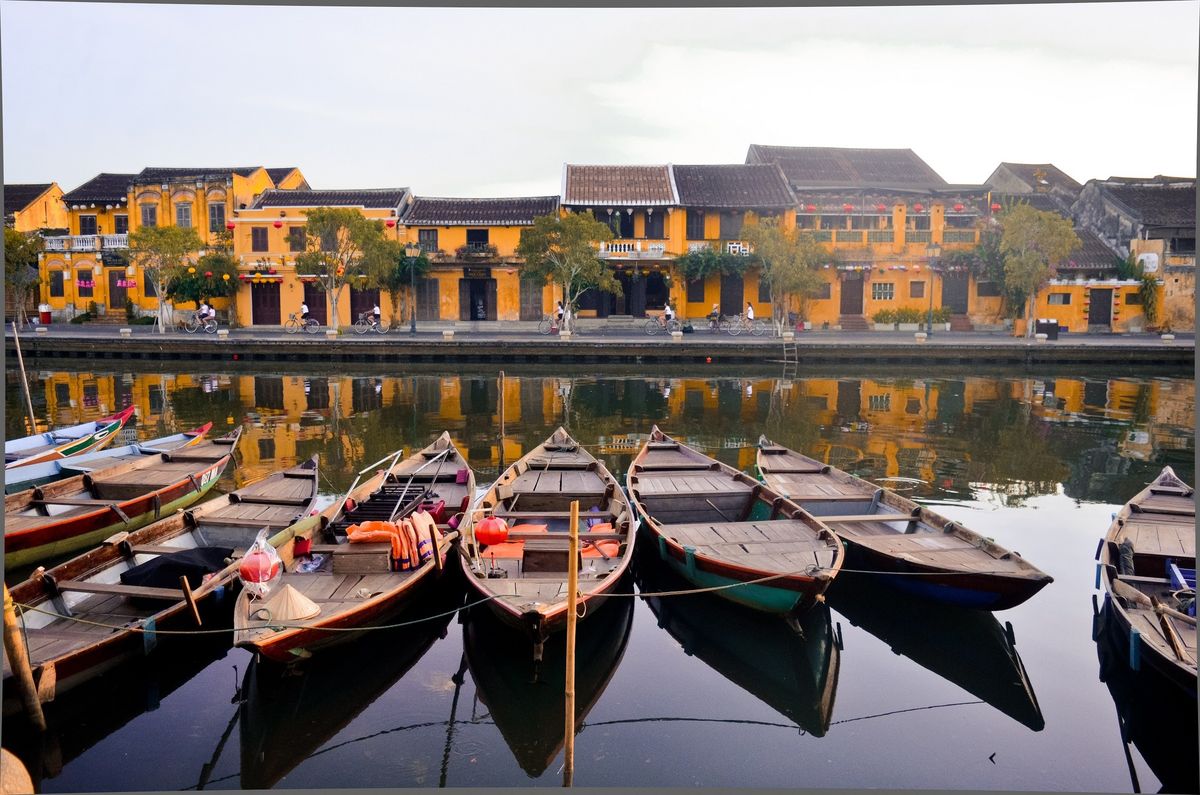
It is this architectural style that has helped Hoi An become one of the most famous tourist destinations in Vietnam. Every year, it welcomes a large number of tourists to visit and explore, becoming one of the must-visit places if you are in Da Nang. With the time that Hoi An has existed and witnessed, it is not too much to consider Hoi An as a living witness, a museum preserving the architecture and urban lifestyle of the people here.
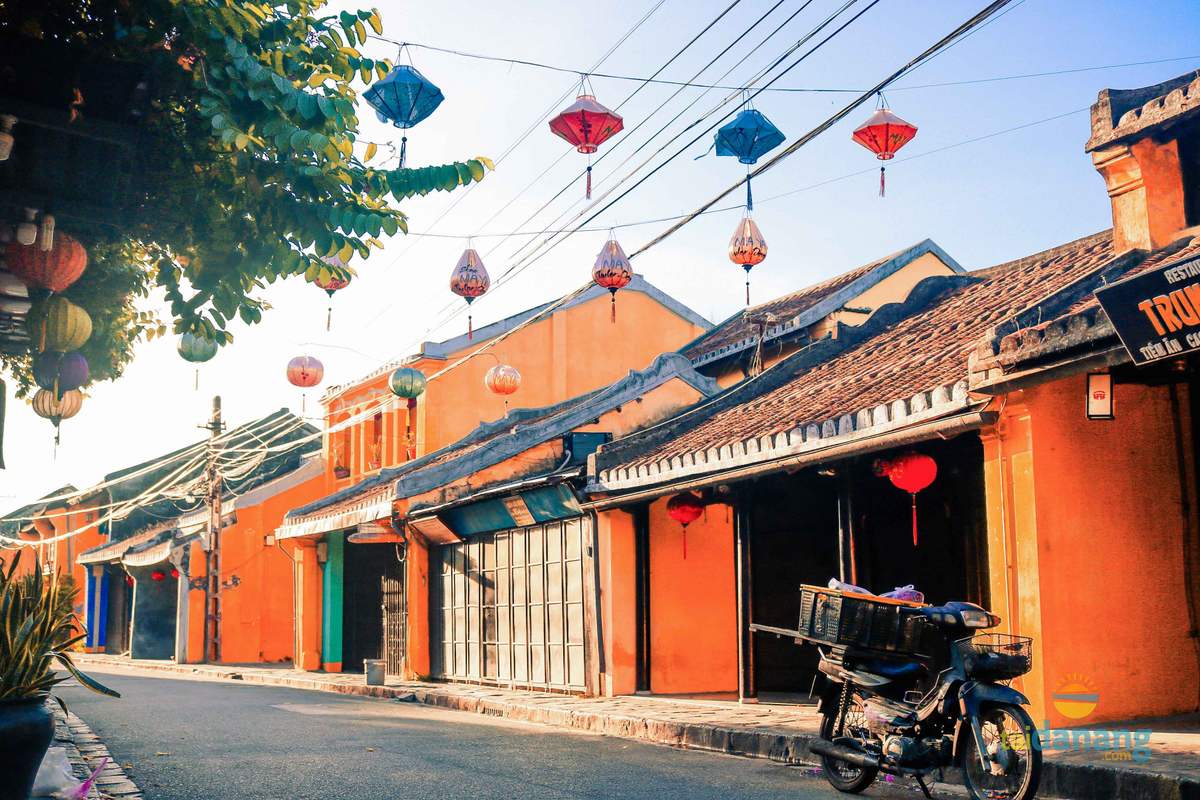
In addition, after considering the distinctive cultural architectural features and what the city of Hoi An has witnessed alongside the Thu Bon River for many centuries, at the 23rd session on December 4, 1999, the United Nations Educational, Scientific and Cultural Organization (UNESCO) recognized Hoi An Ancient Town as a world cultural heritage site, based on two specific criteria:
Hoi An is an outstanding example of the combination of different cultures through various periods in an international trading port.
Hoi An is a typical example of a well-preserved traditional Asian port town.

Characteristic Urban Architecture of Hoi An Ancient Town
Old Town Quarter
Hoi An Ancient Town is entirely located in Minh An Ward, with a total area of up to 2km², featuring a diverse range of architectural structures interspersed with each other, such as townhouses, assembly halls, bridges, and streets.
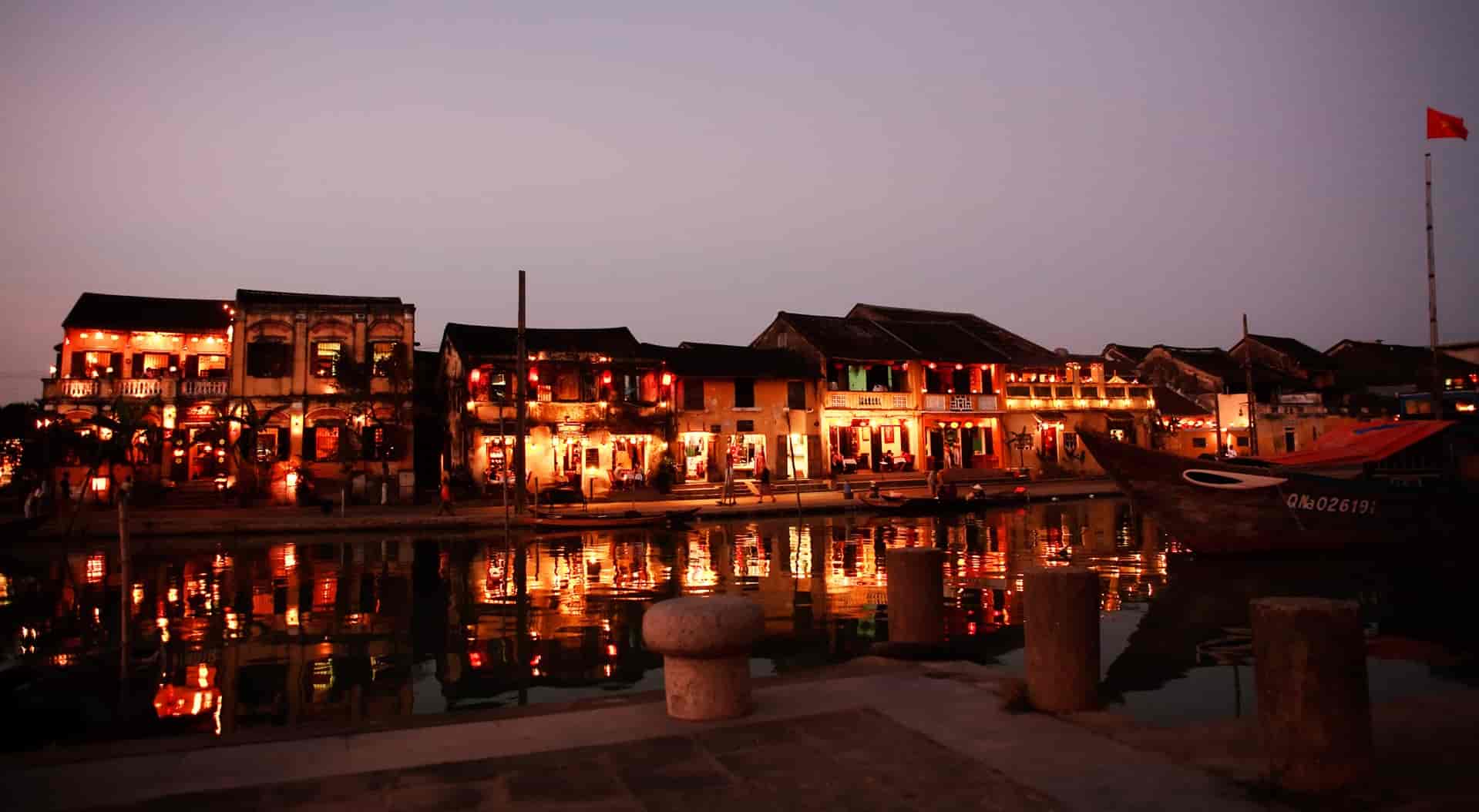
The most famous part of Hoi An is perhaps the old town quarter with its closely clustered houses lining up along intersecting streets like a chessboard, similar to the old street system in Hanoi. To preserve its architecture over the years, the old town quarter is regularly maintained and renovated, especially during the rainy seasons and floods caused by high tides in the Thu Bon River, which can inundate and submerge the entire old town. During these times, residents of the old town use boats or canoes to move around.
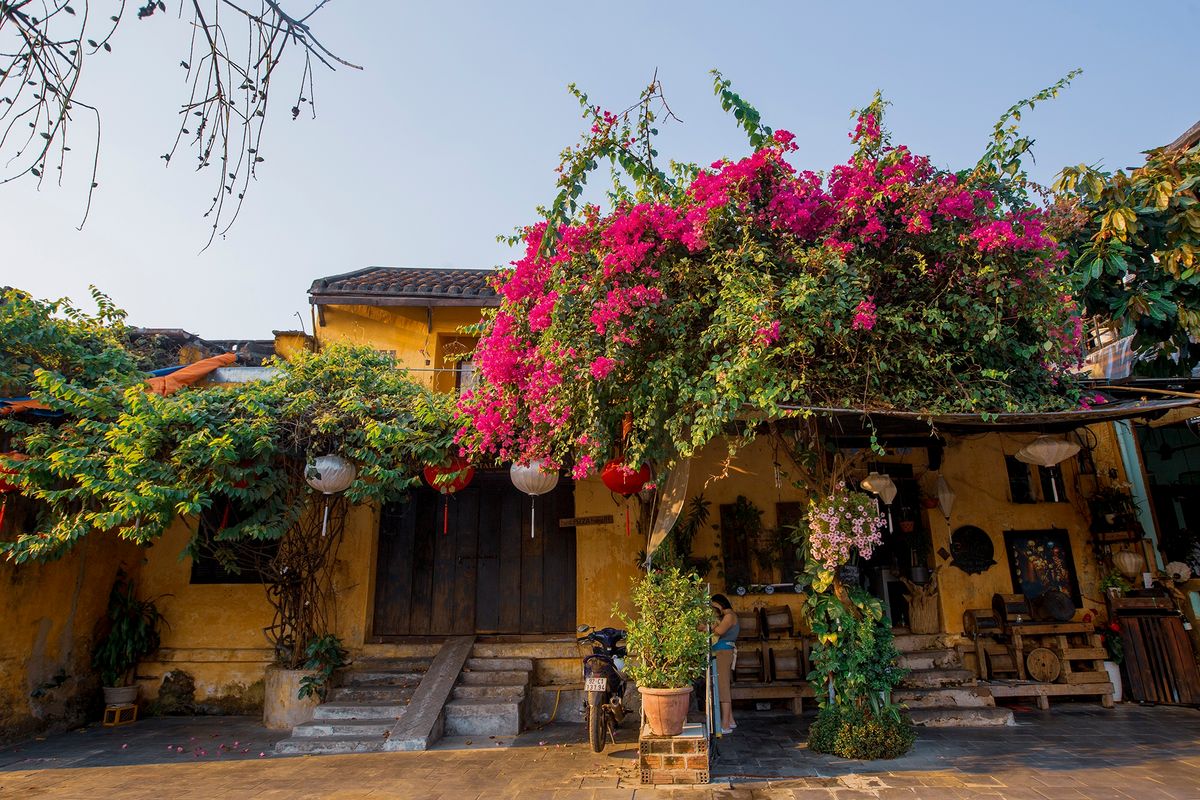
In Hoi An, the streets are often short and intersected by many others, so if you’re not familiar with the area, it’s easy to get lost or confused because the rows of houses seem similar in design.
Traditional Architecture
Visiting Hoi An feels like stepping back into the days of centuries past. Despite experiencing many years of ups and downs, the ancient town still stands tall, retaining its ancient and noble beauty as it did in its early days.
The overall architecture is the striking feature of Hoi An Ancient Town, where every house, every street, and every detail seems to harmonize with each other in a peculiar way, as if they were made for Hoi An and you cannot confuse them with any other old town.
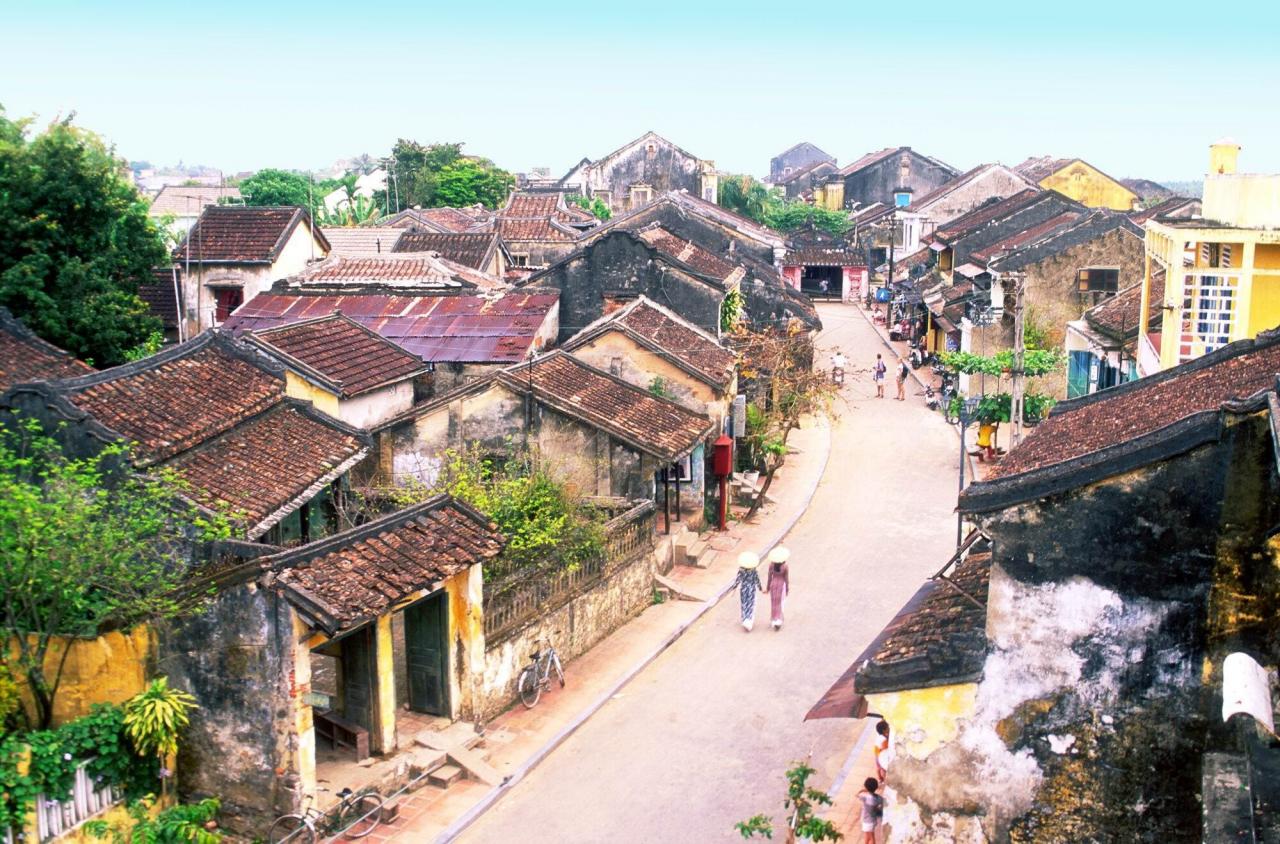
Most prevalent here are the traditional-style townhouses, with similar distinctive designs, using brown-yellow tones as the main color palette. These townhouses typically consist of one or two floors with narrow frontages but deep depths, creating a sense of spaciousness and plenty of living space.
The houses in the ancient town are structurally sturdy, often built with a robust wooden frame and walls made of durable bricks. Due to frequent floods in the area, these houses are constructed very solidly and resiliently. This is one of the reasons why Hoi An Ancient Town has endured over time and remains intact until today.
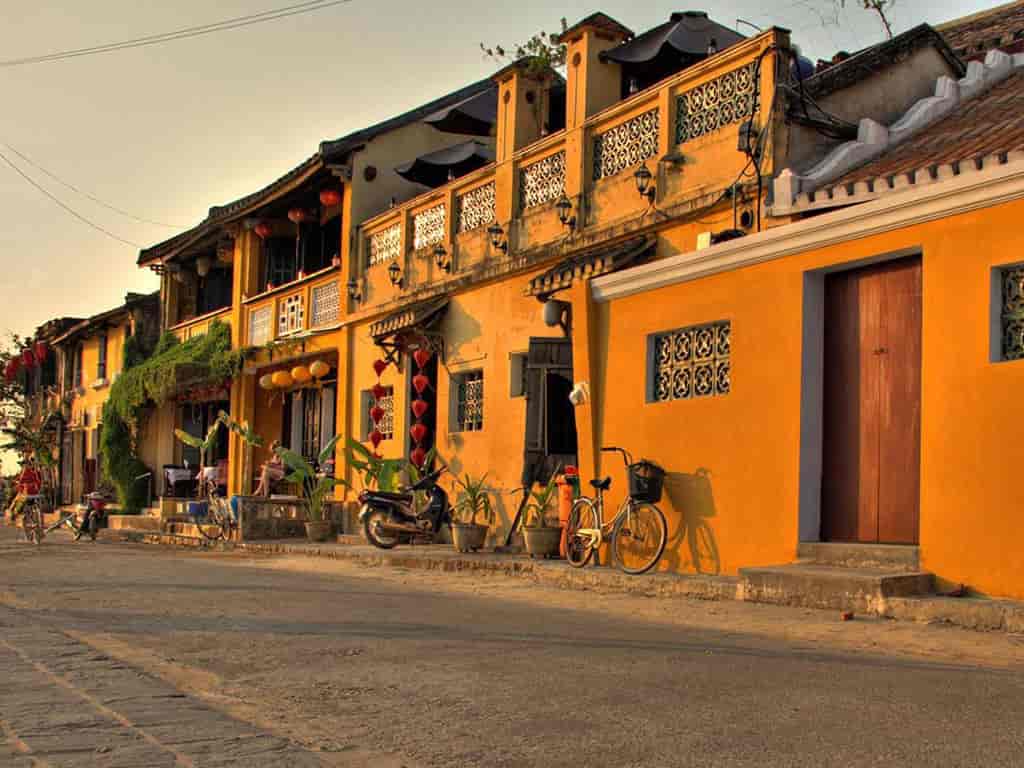
In addition to the frame and walls, you’ll notice a uniformity in the roof structure in Hoi An, where roofs are typically constructed with the characteristic yin-yang style, followed by a fixed plastering process. The roofs are often made from thin, red-brown clay tiles, which are characteristic of the region.
When you visit Hoi An, you’ll certainly see this type of house everywhere. Especially taking advantage of the depth of the house, residents often divide them into three basic spaces: trading space, living space, and worship space.
Architectural Relics
When you visit Hoi An Ancient Town, you seem to sense a reverence for deities and religion through the incorporation of various religious motifs into communal architectural works and construction styles.

Today, when you come to Hoi An, you may encounter many assembly halls, ancient churches, or temples with characteristic ancient architecture, heavily influenced by Chinese style, embodying the beliefs and worship of the people through the ages. Besides sightseeing, you’ll have the opportunity to explore and learn more about the beliefs of the old town residents, gaining a deeper understanding of their spiritual life, the world of spirituality, and their way of life.
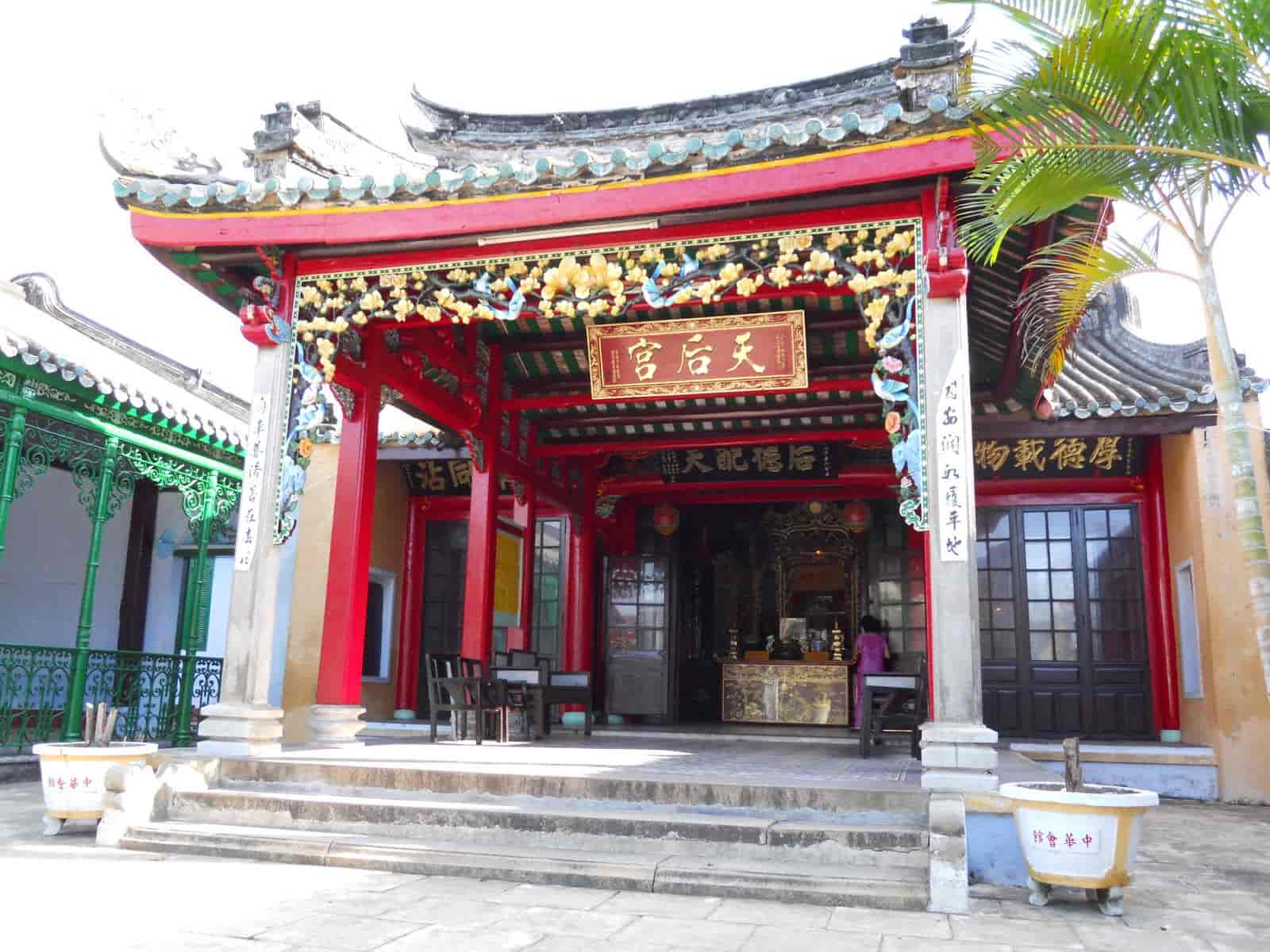
Some international titles helping Hoi An Ancient Town reach the world
- Ranked as one of the Top 10 most beloved destinations in Asia and among the Top 10 most romantic cities in the world.
- “Memories of Hoi An” recognized as the most beautiful scene show in the world.
- Hoi An secured the first position in the top 15 most wonderful cities in the world, as voted by Travel & Leisure magazine.
And of course, to truly understand and experience the beauty of Hoi An Ancient Town, come and directly feel the rows of ancient houses, the tranquil Thu Bon River, and the assembly halls bearing the beauty of a bygone era.



[…] walking around Hoi An Ancient Town come across a traditional market building located in a central location. Hoi An market is more […]
[…] December 1999, the Ancient Town of Hoi An was recognized by UNESCO as a World Cultural Heritage Site, marking an important milestone in the […]